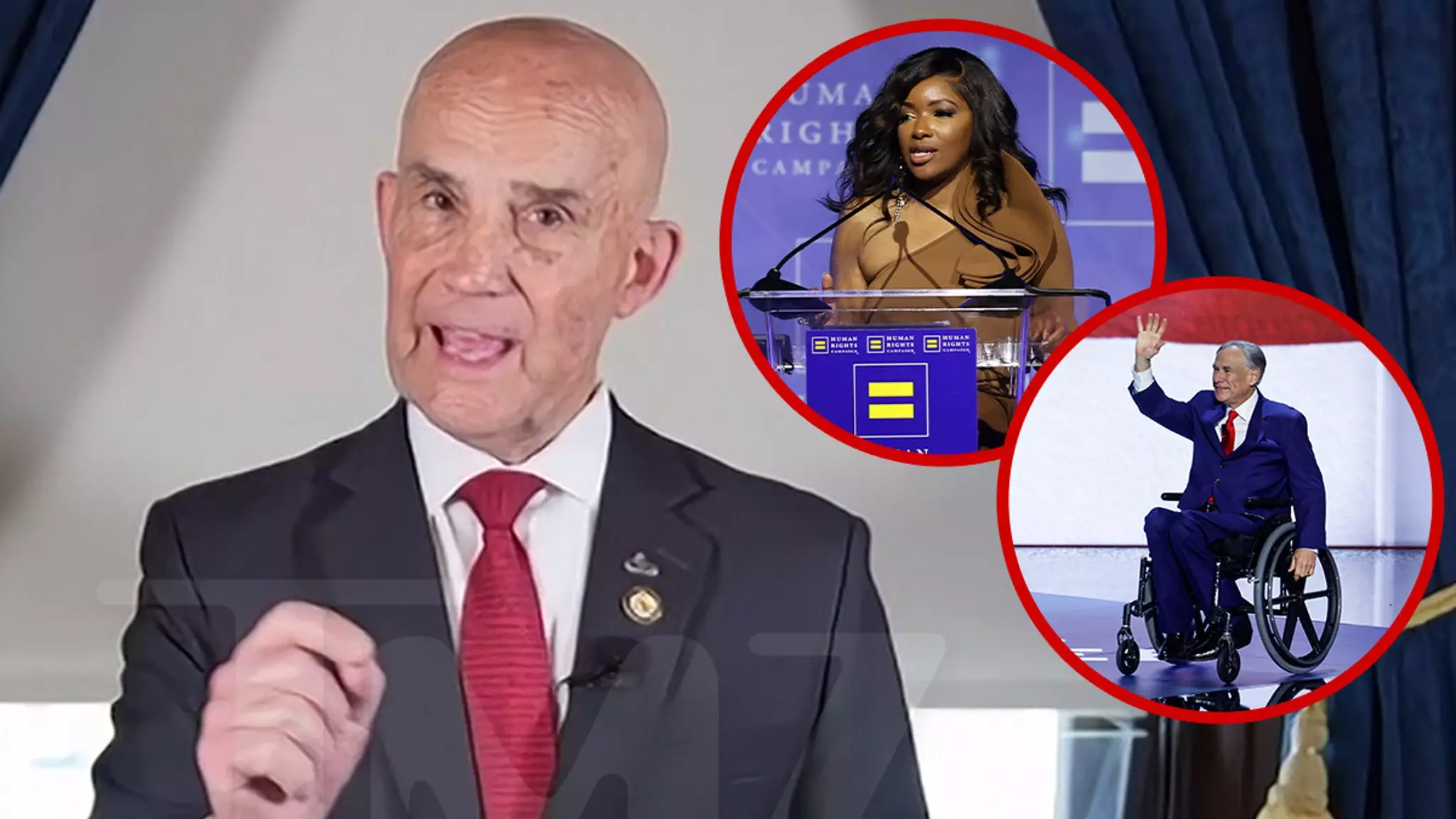In an era where political discourse frequently blurs the lines between civility and comedy, Congressman Keith Self’s criticism of Congresswoman Jasmine Crockett for her remarks about Texas Governor Greg Abbott raises a compelling question about accountability in political commentary. Self’s remarks on “TMZ Live” highlighted his perception of Crockett as a bully after she dubbed Abbott “Governor Hot Wheels,” referencing his wheelchair use due to disability. This sarcastic nickname brings a mix of humor and controversy that is often seen in the political arena. Yet, instead of focusing on Crockett’s quip, Self is digging into her character instead of addressing the broader implications of political humor.
The Politics of Mockery
One can’t help but notice the hypocrisy when Self deftly dodges the chance to condemn Donald Trump’s previous mocking of a journalist with a disability. By choosing to focus on Crockett’s comments, which she asserted were not meant to belittle Abbott’s condition but rather critique his policies, Self seems to sidestep an equally pertinent discussion about Trump’s longstanding history of derogatory jokes. This selective outrage raises eyebrows and highlights a double standard that is often prevalent in political dialogue. It begs the question: Are some political figures shielded from scrutiny simply because of their established persona?
Crockett’s Defiance and Contextual Analysis
Crockett’s refusal to apologize, coupled with her assertion that her comments were aimed more at Abbott’s political actions than his disability, serves as a defense mechanism in a space where political rhetoric often intertwines with personal attacks. The Congresswoman contends that her original intention was to criticize mismanagement of significant societal issues by Abbott, notably in the context of immigration and community tensions. This context is vital—it transforms her jest from a belittling jab to a critique laced with pointed observation. Crockett’s comments encourage us to contemplate the boundaries of humor and the responsibility that comes with public commentary.
The Irony of Political Discourse
The fallout from this incident illustrates a broader irony in political narratives. Self acknowledges the dichotomy between self-deprecating humor and mocking others, but his refusal to denounce Trump reflects a troubling acceptance of certain behaviors while denouncing others within opposing camps. The irony is palpable: Here we have Self calling Crockett a bully for her comments, yet he is unwilling to confront a similar offense by a figure within his own party. This selective criticism diminishes the integrity of political discourse, whereby critiques become merely weapons wielded in the ongoing battle of partisanship.
Implications for Political Engagement
As the conversation unfolds, we must question what this means for future political engagements. When personal attacks are used as tools for critique, how do we foster an environment where substantive discussions about policy can occur without the slippery slope of mockery? It seems increasingly important for both sides of the aisle to establish guidelines that separate laughter from degradation. In doing so, they can reclaim a space that prioritizes discourse over derision, a necessity for fostering a more productive political climate.
In the end, the saga of Crockett and Self showcases a battlefield where humor, privilege, and the weight of words collide, offering a point of reflection for individuals on how rhetoric can influence the perception of political figures and their policies.

